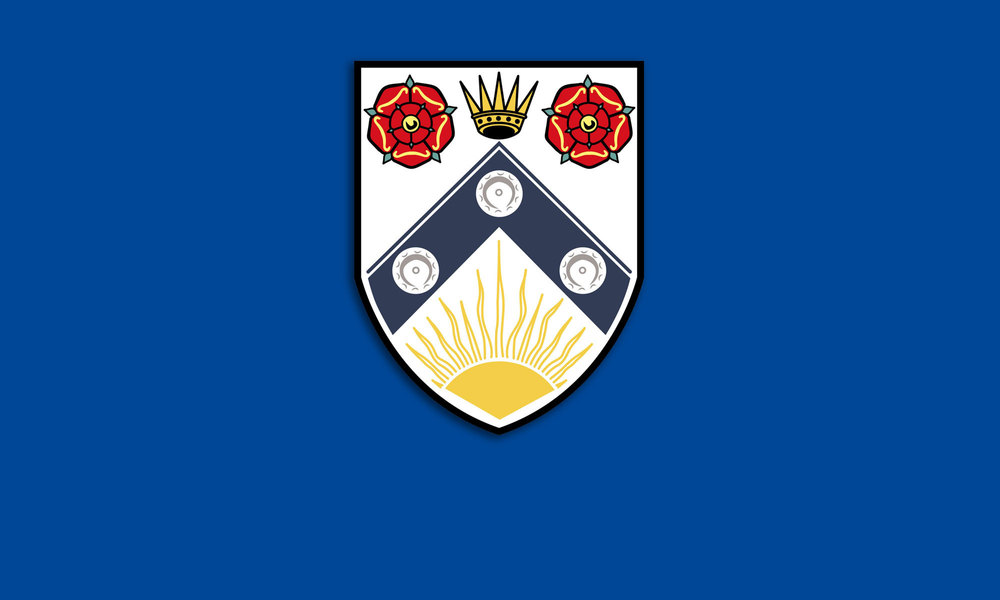
Lowestoft Town have a fine history stretching back well over 100 years.
The club is first recorded as East Suffolk FC with games, all friendlies in those days, recorded back in 1884.
On merging with the original Kirkley club the title of Lowestoft was adopted in 1887 with ‘Town’ added in 1890
When the Norfolk & Suffolk League was formed in 1897, providing the first inter-county competitive matches, Lowestoft dominated, winning the title 6 times in the first 7 years.
The ‘odd’ season out 1899/1900 saw Lowestoft’s attentions turn to the FA Amateur Cup with victories over such famous names as Leytonstone (9-0), and Gt Marlow (1-0) on the way to the final which brought a 1-5 defeat by Bishop Auckland at Leicester.
In 1904 Lowestoft had to appear before a FA Commission to answer charges of professionalism after a testimonial had raised just under £5 for player Fred Timoney, who was about to emigrate.
Norwich City, who had ‘poached’ four of Lowestoft’s successful side amongst others, were also called before the commission. Whilst City accepted the ruling and formally adopted professionalism to start on the road that has seen them up amongst the top clubs in the country, Lowestoft paid restitution of 2 guineas to regain amateur status.
In 1925 came the decision to adopt the blue and white colours that have served them so well since.
Lowestoft became founder members of the Eastern Counties League in 1935 but before starting out on this new challenge once again merged with local rivals Kirkley.
The move proved a wise one with the first season seeing them sharing the title with Harwich & Parkeston and then winning it outright two years later.
Lowestoft took the bold step of becoming semi-professional in 1962. And seven ECL titles and twice runners-up in the following nine seasons is clear testimony to the manner in which they dominated in those years.
The ECL title was again won in 1977/78. The 1980s saw a decline in the club’s fortunes as crowds and income dropped.
The unique club pavilion, originally the Yacht Club before being taken down and moved from the harbour to the Crown Meadow in 1902, was gradually falling into disrepair and the floodlighting system installed in 1964 was coming to the end of its lifespan.
The floodlights were updated in 1986 and the new dressing room complex occupied in 1989 and at last attention could be paid to playing matters.
As playing fortunes declined a 19-year-old local lad signed for the club in 1980 who was to figure prominently in the affairs of the club for the next 30 plus years.
Micky Chapman soon became a favourite with his all-action style, eye for the goal, long flowing hair and a genuine desire to bring success back to the club.
Five player of the year trophies adorn his display cabinet as a testimony to the respect he has earned from supporters and players alike.
The 1990s saw Chapman progress from captain to assistant manager and finally manager in 1994.
A persistent back injury forced him to hang up his boots in 1997, allowing him to concentrate fully on the managerial side.
With the unwavering support of successive chairmen, Chapman had been able to improve the side year by year.
In February 2012 he took charge of his 1000th game as Lowestoft manager.
After several years in the doldrums, the 21st century saw Chapman team up with Ady Gallagher to bring a return to trophy-winning days with the Ridgeons League title won twice, the League Cup collected twice, and the Suffolk Premier Cup brought back to the Meadow five times.
The culmination of all that recent success came in May 2008 when joint managers Micky Chapman and Ady Gallagher proudly led their squad out onto the hallowed Wembley pitch in the FA Carlsberg Vase Final.
On a blazing hot Sunday afternoon in front of over 14,000 Lowestoft supporters, the Blues were in the lead for three-quarters of the game before conceding a last-minute goal to lose out to Kirkham & Wesham by the odd goal of three.
Season 2008/09 saw the first team win a league and County Cup double, as well as reach the semi-final of the Vase and the season ended with promotion to the Isthmian League Division One North.
Success continued unabated in 2009/10 with back-to-back promotions seeing the Blues soar to the Isthmian Premier Division at the first attempt, achieving a century of points and goals for the second consecutive season.
An excellent FA Cup run saw the First Round proper reached with the run ended at Wrexham by a cruel deflected goal in the final minutes.
The first season in the Isthmian Premier Division saw the Trawlerboys involved in the promotion race right to the end.
There was just 9 minutes of the season left when Tonbridge Angels scored the goal that gave them a 3-4 victory and ended Lowestoft’s hopes of a third successive promotion.
It was a similar story in the following two seasons with late goals in the play-off final denying them promotion before the dream of Step 2 football in the National League was realised in 2014 with a play-off victory over AFC Hornchurch and a third promotion in six seasons.
Season 2014/15 was one of consolidation in the highest sphere the club has ever reached and, despite several early morning departures and a mere 8,500 plus miles of travelling, a satisfactory season ended with them holding a 16th place finish suffering just a single defeat in their final 13 fixtures.
On top of this the blues closed their season out by winning the Suffolk Premier Cup for the twelfth time; beating Whitton United 2-1 after extra-time.
It was also a season that marked the farewell of a true Lowestoft Town legend with Micky Chapman retiring after the last league game of the season at home to Barrow, who sealed the league title that day with a 3-2 victory over the Blues.
After 32 years, 480 first-team appearances, 193 goals, 1,640 games and 147,600 plus minutes as a player, player-manager and then manager during that time, it was the end of an era for a figure who will forever be etched in the history of Lowestoft Town FC.
Season 2015/16 saw Ady Gallagher in sole charge for the first time but a season plagued with injuries saw the Trawlerboys relegated on the last day of the season on goal difference bringing a return to the Isthmian League Premier Division.
Season 2016/17 was to prove one of consolidation as they adjusted to life at step 3 in a Season once again plagued with injuries.
Season 2017/18 proved to be one of turmoil as firstly Gallagher stepped down to be replaced by his assistant Dale Brooks.
The club was then hit by financial problems which saw the departure of several leading players, but Brooks achieved a minor miracle by avoiding relegation with the remnants of his squad aided by a bevy of youth loan signings and the club's scholars.
Brooks stepped down during the summer of 2018 to be replaced by two former players Jamie Godbold and Andy Reynolds who between themselves boast over 900 appearances for the Trawlerboys.
After two interrupted campaigns due to the global pandemic, Lowestoft struggled in 2021/22 and finished bottom of the Premier Division Central table.
Albert Foan was a veteran of British Expeditionary Force in the Second World War and played his early football in his military days.
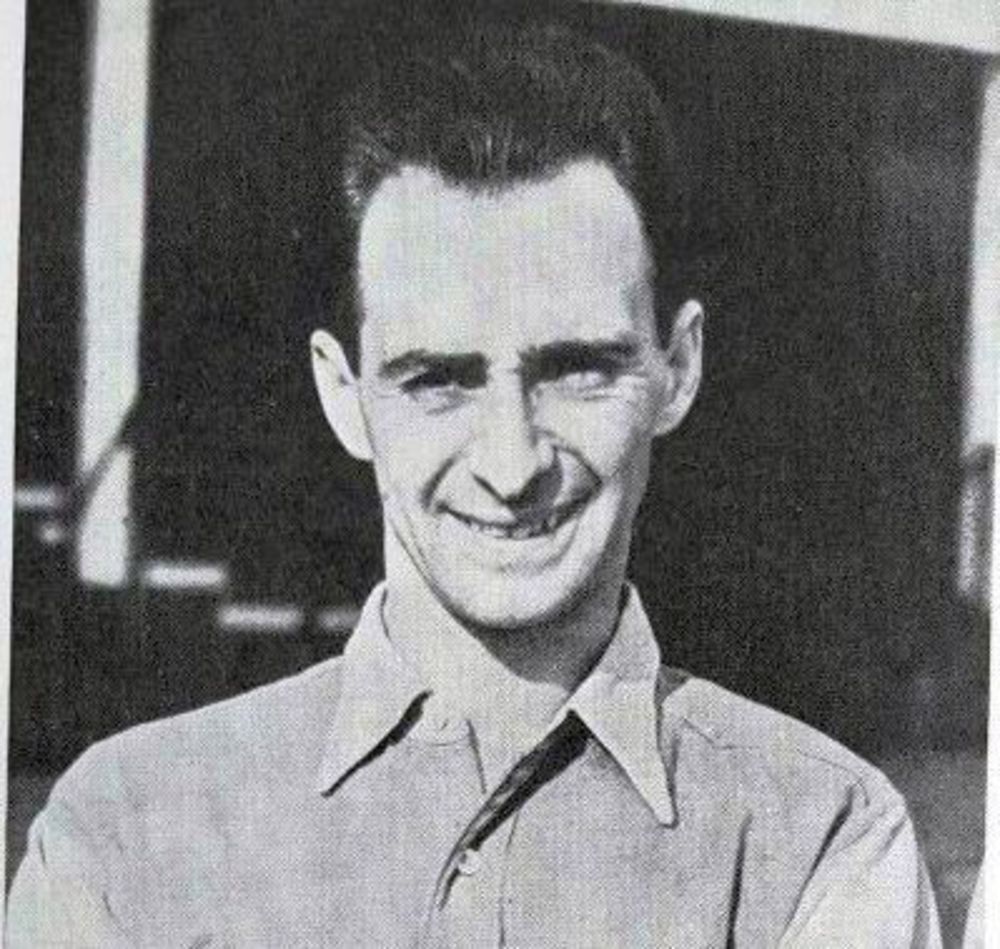
Albert Foan
A Londoner, he escaped the attention of the Capital’s clubs and after winning honours with London Boys, was signed by Norwich City in 1947.
He spent three years at Carrow Road, making 18 appearances and scoring 4 goals, before moving to West Ham United in July 1950.
He went on to spend over six years with the Hammers, then in the Second Division, and made a total of 60 appearances, scoring 9 goals, including a hat-trick in an FA Cup tie against Preston North End in 1955/56.
But in February 1957, he joined up with former West Ham team-mate Almer Hall, who was managing Southern League Margate.
He spent five seasons at Hartsdown Park, making over 170 appearances, scoring 30 times.
After leaving Margate, he returned to live in Norwich and joined Lowestoft in 1961.
He remained playing regularly in the Eastern Counties League, despite being involved in a major car crash which, fortunately, he only sustained minor injuries.
In 1966/67, at the age of 43, Foan played for the Trawlerboys in the First Round of the FA Cup at Leyton Orient!
He played 181 times for Lowestoft, scoring 26 goals, before leaving Crown Meadow in 1967 and finishing his playing days at Great Yarmouth Town at 44.
He died in August 2009 at the age of 85.
Cliff Fairchild was a full back, born in Romford, who started his career with then-Athenian League side Barking.
However, by his 19th birthday, he was registered as a professional with Tottenham Hotspur's nursery side Northfleet United.
He trialled for newly formed Southern League side Colchester United during the summer of 1937 in a `probables versus possible` pre-season game, impressing Colchester manager Ted Davis.
He signed on for the club's first professional season, making his debut in their first-ever game, a 3–0 defeat to Yeovil & Petters United at The Huish in August 1937.
Having become a regular in Davis' first-team, Arsenal manager George Allison was sufficiently impressed to sign him from Colchester for a £500 fee, in addition to the Arsenal first-team, taking part in the Colchester Challenge Cup against Wolverhampton Wanderers at Layer Road - a match between two First Division sides that drew a then-record crowd of 17,854 to Layer Road.
The deal allowed Fairchild to remain with Colchester until the end of the 1937/38 season.
Remaining with Colchester allowed Fairchild to help his side to lift the Southern League Cup after beating Yeovil 4–3 on aggregate over two legs.
He played his final game for the Us in April 1938 as Colchester thrashed Newport County reserves 8–0 at home.
Fairchild joined Arsenal for the 1938–39 season but was restricted only to appearances for the colt’s side. He revisited Layer Road with the reserves in the Southern League and Cup but failed to make a first-team appearance for the Gunners. He was released at the end of the season.
Third Division South side Southend United signed Fairchild for the 1939/40 season, where he made two appearances in the Football League before the league was disbanded due to the outbreak of the Second World War, although he played a selection of wartime friendlies for Southend.
After the war, Fairchild became player-coach at Great Yarmouth Town in August 1946, and in the early 1950s continued his playing career with Lowestoft Town until the 1955/56 season, aged 39.
He died in 1974.
Frazer Blake-Tracy is a left-back who spent his early football career with Isthmian League side Dereham Town in 2015/16 moving on to fellow Isthmian leaguers Lowestoft the following season.

Frazer Blake-Tracy
He played 43 times for the Trawlerboys before being signed by King’s Lynn Town.
He helped the Linnets to promotion from the Southern League and went on to make 98 appearances in all competitions, scoring 2 goals
And his consistent and impressive performances caught the eye of Peterborough United, who handed him a two-year deal after a successful trial.
A League One promotion winner in 2021, he was snapped up by Jimmy Floyd Hasselbaink for his new-look Burton Albion squad ahead of the 2021/22 campaign and he featured in 20 matches.
Nigel Cassidy was a Lowestoft legend in the 1960s.
During a period of Lowestoft’s domination in the Eastern Counties League, Cassidy was the Blues fourth-highest goalscorer with an amazing goal ratio of 103 goals in 94 competitive games.
Nigel, the son of a pre-war Norwich City player Francis Arthur Michael Cassidy, began his career with Norwich, joining them as a 15-year-old in 1961 as an apprentice.
His father, also a centre-forward, played just one first-team game for the Canaries, away to Coventry City in October 1937, but he did manage 18 goals in 70 reserve team games.
Two years later Nigel was released to join Lowestoft, playing in their reserve team during 1962/63, while still only 16.
Playing football for Lowestoft when required and working full time with Birds Eye in the Quality Control team, he made his debut for Lowestoft's first team during 1964/65 and never looked back during the halcyon days for the Blues.
He went on to have equal success in the professional game, playing 255 games for Norwich, Scunthorpe United, Oxford United and Cambridge United in the period between 1967/68 to 1975/76 and scoring 81 goals.
After this he went onto play for Denver Dynamoes in the North American Soccer League in 1975 before spending four years as player-manager of Bicester Town in the Hellenic League.
He finished up with two years at Southern League Banbury United, before quitting the game and going to own a number of pubs and hotels in Bicester and then Cornwall.
Winger Mike Grice began and ended his playing days with Lowestoft.
He played in the Eastern Counties League for the Trawlerboys before being signed by Third Division South side Colchester United in 1952 at the age of 21.
He went on to make 106 appearances for the Us and score 14 times and was also selected to play for the Third Division South representative side in 1954/55.
He was sold to then-Second Division West Ham United for £10,000 in 1955 and the flying winger – a maker, rather than a taker, of goals – helped the Hammers to in the Second Division title in 1957/58.
After playing 142 games for West Ham and contributing 18 goals, he moved to Coventry City for the 1961/62 season and then returned to Colchester the following year to end his professional career with a further 140 games and 13 goals for the Layer Road outfit.
In 1966, he re-joined Lowestoft where he played alongside his former West Ham team-mate Albert Foan.
He passed away in August 2002 at the age of 70.
Bryan Thurlow was Norfolk born and bred.
Born in Loddon in 1936, he played full back for his local side and Bungay Town before Norwich City could see the potential and offered him professional terms in August 1954.
Thurlow was a key figure in the famous team of Terry Allcock, Ken Nethercott and Barry Butler who defied the odds as a third-tier side to knock out mighty Manchester United en-route to the last four of the FA Cup.
Thurlow was denied a Wembley appearance in a semi-final replay against Luton Town but was part of a promotion-winning side two years later.
He made 224 senior appearances but scored just the once before spells at Bristol City and then Lowestoft Town prior to retirement.
He passed away in 2002.
Gary Holt was plucked from obscurity when serving as a soldier in Germany.
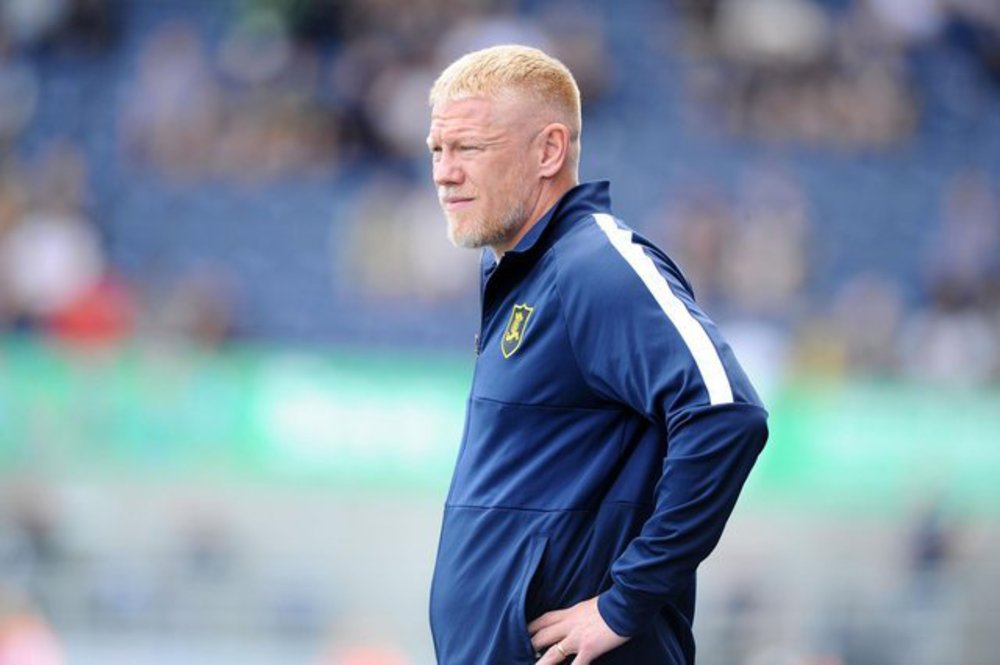
Gary Holt
Signed by Lou Macari for Celtic in 1993, he failed to make any first team appearances and moved on to Stoke City where the same occurred again.
Returning to Scotland with Kilmarnock in 1995, he played over 150 games for the Killies leading them into European competition and won 3 Scottish caps including World Cup ties with Latvia and Croatia.
He signed for Norwich City whilst on international duty with the Scottish national side whose coach Craig Brown described the deal as a bargain. Holt signed off with Kilmarnock after their 3-0 CIS Cup final defeat to Martin O'Neill's Celtic on 18th March, in which ex-Canary Chris Sutton was sent-off for a late challenge on City's new signing.
Holt was a combative right-sided midfielder who made up for his lack of skills with a powerful engine and desire to win.
He made his debut for Norwich in the 2-1 home win over Grimsby Town in March 2001 and made the central midfield position his own in the early days of the 2001/02 season and was called up for the Scottish World Cup clash with Latvia.
He was voted player of the year for season 2001/02 in which he was ever-present. His performance at Cardiff in the Division One play-off final sums up his attitude to football in that he kept going to the end despite taking some severe knocks and injuries.
April 2004 proved to be a very good month for Holt. Not only were Norwich promoted back into the Premiership, but he was recalled to the Scottish squad after an absence of two years and started in their April 2004 clash with Denmark.
The 2004/5 Premiership campaign was marred by injury. He finished the season with appearances and was swapped with Nottingham Forest's Matthieu Louis-Jean in June 2005.
He was released by Forest in May 2007 following their play-off semi-final defeat to Yeovil Town which consigned them to another season in League One.
Holt signed for Wycombe Wanderers in July 2007 and helped the Chairboys win promotion to League One in the 2008/9 season.
However, he left the club in July 2009 and signed for Colchester United as player-coach.
He quit Colchester at the end of September 2009 and signed for Lowestoft the following month, helping them become Isthmian League Division One North champions for 2009/10.
In July 2010, Holt returned to Norwich as assistant academy manager and in 2012, he was the academy's professional development coach
In April 2013, Holt left Norwich to become the new manager of Scottish side Falkirk, replacing Steven Pressley.
Despite leading Falkirk to the play-off finals, Holt quit at the beginning of June 2014 to return to Norwich as first-team coach.
Holt left Norwich again in June 2016 and in August 2018, he took charge of Scottish Premiership side Livingston, replacing Kenny Miller.
He quit in November 2020 after a disappointing start to the Scottish Premiership season. They had won just 3 of the opening 15 games of the 2020/21 campaign.
In January 2021, Holt returned to Falkirk as their sporting director and in April 2021, following Falkirk's slip from pole position in the table, Lee Miller and David McCracken were dismissed and Holt put in charge for the remainder of the season.
Holt then returned to the role of sporting director before leaving Falkirk in January 2022.
Plymouth-born goalkeeper Jamie Waite is a full Thailand international, who is the second youngest international to appear for the country aged 15 years and 354 days – beating the record held by the great Pele by 291 days
The son of a British father and a Thai mother, Waite started his career as a junior player in Thailand and then when moving to Suffolk, had spells as a youth with Ipswich Town, Colchester United and Fulham before joining Eastern Counties League side Ipswich Wanderers.
It was whilst with Wanderers that he gained international recognition and made his debut in Thailand's clash against Singapore in Bangkok in 2002.
His form for the Thai national side alerted Rotherham United, who moved to bring the goalkeeper to Millmoor on a three-year scholarship. However, he left the Millers after a year.
He had short spells with Braintree Town, Kettering Town, Barrow AFC, Stevenage Borough, Cambridge United and AFC Sudbury.
In July 2006 he signed for MK Dons, where he made 3 first team appearances before being diagnosed with cancer of the lymph glands and underwent a 10-month chemotherapy programme before being given the all-clear.
He made his comeback with Conference South side St Albans City in August 2007 and played a dozen times before being handed another chance at full-time football with Bradford City in November 2007.
He played 3 times in the Bantams` senior side before being one of 14 players released at the end of the 2007/08 season, although he did have a loan spell with Droylsden.
A short stint at Doncaster Rovers was followed by a spell with Harlow Town which ended in 2009.
After a period out of the game, he then made a comeback with Lowestoft in 2016/17.
Phil Kelly was a full back who spent two years with Lowestoft at the end of his career, including a period as player-coach.
After injury cut short his career at Carrow Road, where the 27-year-old had made a total of 134 appearances, he became a successful player-manager at clubs including Lowestoft, Newmarket, Thetford and finally Reepham.
Kelly started his career playing as an amateur with Birmingham City and with local sides Sheldon and Brockhill.
He joined Wolverhampton Wanderers in September 1957 and won his first international honours for the Republic of Ireland at Molineux, playing five times between 1960 and 1961.
After making 16 appearances for Wolves, he moved to Norwich City in August 1962.
He made 134 appearances for the Canaries, scoring 3 goals.
After his top-flight career ended, he moved to Lowestoft as player coach between 1967 and June 1969 in the Eastern Counties League, and then later at Newmarket Town.
After taking over from Dick Scott in January 1971, his 16-month spell as player-manager at Thetford Town to May 1972 was one of the most successful for the Mundford Road club as it finished fifth – the highest ever position in the ECL.
Later, after rejuvenating Reepham Town in the Anglian Combination, he returned to Thetford as manager in 1974.
He took to the field with the oval ball, playing for Holt Rugby Club, and captained the Owls in the 1980 season at the age of 41.
In 1989, he was a founder member and wicketkeeper of Norfolk's Black Sheep Cricket Charity, which has raised more than £50,000 for local children's charities over the years.
He passed away in August 2012, aged 73.
Inside right Noel Kinsey was born in South Wales, and started his playing days with his local side Treorchy Amateurs before being signed by Cardiff City just after the Second World War.
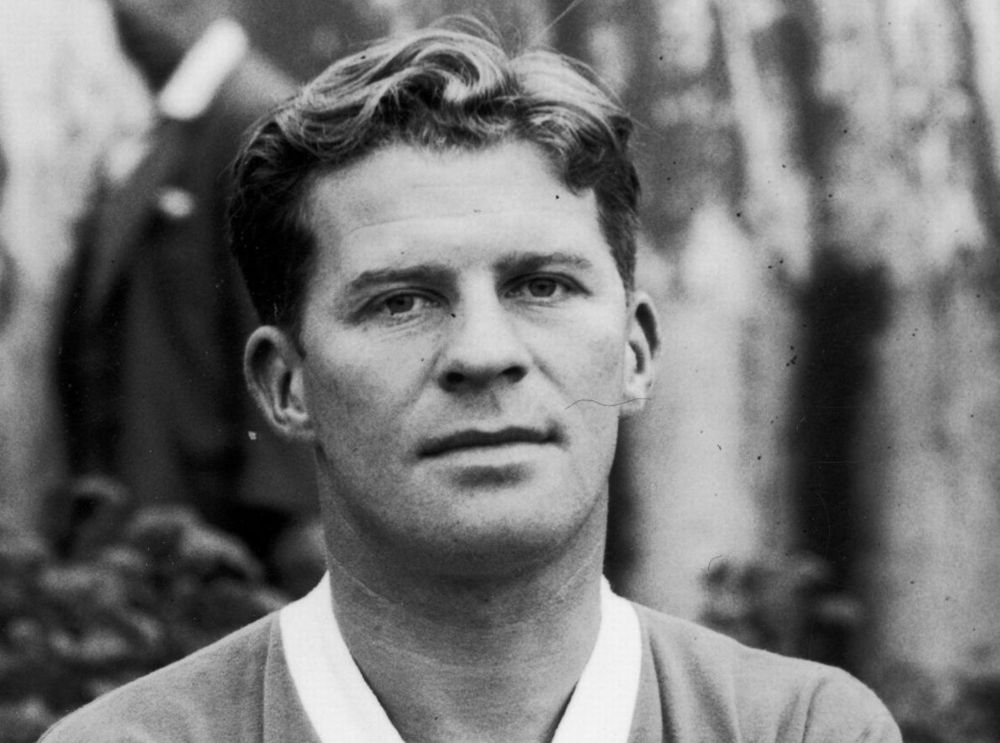
Noel Kinsey
Kinsey joined Norwich City at the start of the 1947/48 season and went on to become a regular scorer for the club.
His goals helped City become competitive in the old Third Division South, after they had struggled in the immediate post-war years.
The Canaries finished second, third and fourth in consecutive seasons, with Kinsey playing a key role from his position of inside right.
He went on to make 243 appearances for the Carrow Road outfit, with his impressive goal tally of 57 placing him 12th in the club's all-time scorers' list.
His best season in front of goal was the 1949/50 campaign, when he netted 17 goals in 42 appearances.
Kinsey left Norwich at the end of the 1952/53 season to join Birmingham City, helping the Blues to the Second Division title and scoring what proved to be a consolation goal in the 1956 FA Cup Final, which Manchester City won 3-1.
It was a game that went down in Wembley folklore, with Manchester City's German goalkeeper Bert Trautmann playing on despite breaking a bone in his neck after a challenge from Birmingham's Peter Murphy.
Kinsey spent a total of four-and-a-half years at St Andrews, scoring 48 goals in 148 games, before seeing out his Football League career at Port Vale. He netted 6 goals in 72 appearances for the Third Division South outfit.
He went on to play for Cheltenham Town in the Southern League, before deciding to settle back in Norwich.
Kinsey turned out for King's Lynn in the Southern League and was also player-manager at Lowestoft before hanging up his boots in his early 40s.
He later worked for Norwich Union before spending his retirement living in the city.
The Welshman won 7 caps for his country between 1951 and 1955 and featured in qualifying for the 1954 World Cup, playing in the 2–1 defeat to Northern Ireland at Wrexham.
He died in May 2017, aged 91.
Midfielder Sean Norman is another to have started and finished his playing days with Lowestoft.
Born in the town, he began his career with Lowestoft in the Eastern Counties League before joining Colchester United in 1986, initially playing regularly in the reserve team.
He made his first-team debut in August 1986 in the opening game of the season, and he went on to score one goal for the club in 22 appearances.
He joined Conference club Wycombe Wanderers for the remainder of the 1987/88 season, where he made 78 appearances during a two-year spell with the Chairboys, also earning England semi-professional honours in 1989.
Following his time with Wycombe, Norman joined Wealdstone before signing for Chesham United for £25,000.
He later played in New Zealand for Papatoetoe, though he later returned to England, featuring for Chertsey Town, a second spell with Chesham and reconvened with former club Lowestoft where his playing days came to an end.
A feature on Lowestoft Town players wouldn’t be complete without the inclusion of Micky Chapman.
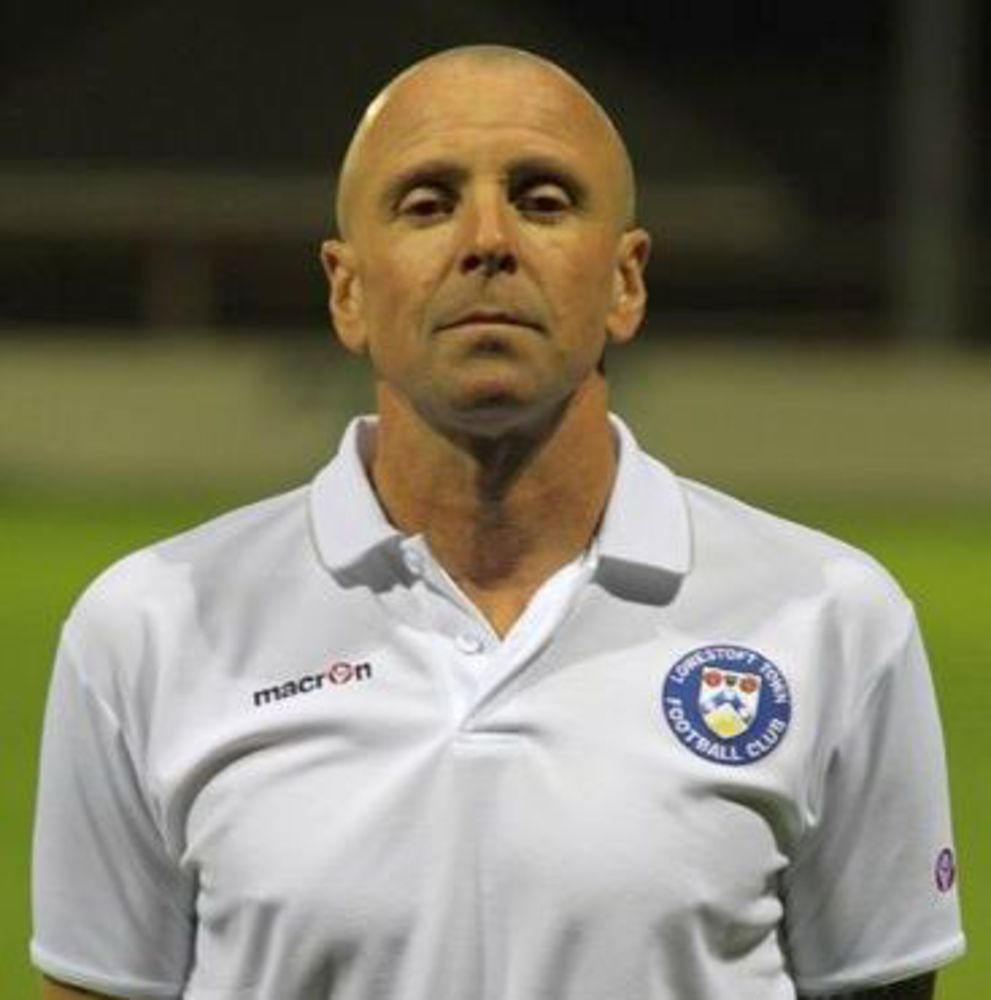
Micky Chapman
In January 1981 a promising young striker with Beccles Town in the Anglian Combination attracted the attention of the then Lowestoft Town manager Jimmy Moran and he signed for the Blues making his debut in an Eastern Counties League fixture against Braintree & Crittall Athletic on 31st January 1981. His stay would last for just three games.
A couple of seasons later (1982/83) the newly installed manager Paul Chick persuaded Chapman to return to the Crown Meadow and he made his second ‘debut’ on 29th January 1983 away to Ely City.
His first goal would come two games later away to March Town United.
Even from those early days his passion and commitment to his home-town club was clearly apparent for all to see and he seemed destined to become the manager at some time in the future.
He quickly progressed from promising striker to club captain, assistant manager (1992), caretaker manager in January 1994 and finally confirmed as manager in the summer of 1994.
As a player he would go on to make a total of 480 competitive appearances for the first team scoring 193 goals – a strike rate of better than a goal every three games.
He also played a further 36 games for the reserves. A persistent back injury denied him the chance of taking his appearance record even higher, but he still remains as the club`s fifth highest appearance maker.
For three and a half seasons he was the player-manager, but his back problem would see him play in only 53 of the 175 games he was in charge of before finally hanging up his boots.
His final appearance on the pitch was a cameo performance as he came off the bench in the closing minute of an Eastern Counties League game against March Town United on 29th March 1997 but he ended in style by putting in the cross for Alan Barnard to head in the final goal in the Blues 10-0 victory.
As a player Chapman’s only trophy success was an Eastern Counties League Cup winners medal in a 2-1 victory over Great Yarmouth Town in season 1983/84.
That would be the club’s only silverware for over 20 years as successive managers Paul Chick, Marty Hubble (caretaker manager), David Mower, Jimmy Campbell, Laurie Sivell (caretaker manager) and Colwyn Rowe all failed to bring a return to the club’s glory days of the 1960s and 1970s.
His first full season in charge (1994/95) saw him face the sort of tragedy you would not wish on any one.
Prior to the start of the season, he had signed close friend Peter Munro to give his side greater strike power and the move seemed to have worked as the goals for column showed a healthy increase.
Munro though was beset by personal problems and took his own life at the end of March 1995.
With the Eastern Counties League refusing permission to postpone the game away to March Town United on 1st April 1995, Chapman was faced with the task of breaking the news to his team-mates on the way to Cambridgeshire, choosing to wear the number 9 shirt himself in the goalless draw in a game which neither side seemed to have an appetite for.
Those early years as manager saw a gradual improvement in the club’s performances but without any sight of silverware and he came under some intense pressure.
Whilst nobody doubted his commitment many were unsure whether he had the ability to bring success back to the club. One former secretary would write to the club on many occasions urging the club to sack him and bring in someone better qualified.
In January 1996 Chapman was summoned to a meeting of a sub-committee when his future would be determined.
The club had had played just one game in five weeks due to excessively wet weather and with no training facilities available hastily arranged a friendly away to Eastern Counties League First Division side Swaffham Town.
That game saw the Blues lose 3-2 which was the last straw in some people’s eyes.
Chapman was called into that meeting with a temporary replacement lined up to take charge of the following game, but Chapman backed totally by chairman Roy Harper won the day and remained in charge.
What the future would have brought had he been dismissed will never be known but with both chairman and secretary ready to resign in protest the club would have been left in turmoil.
The new Millennium finally brought the breakthrough that Chapman had been striving for as a late Sean Norman penalty saw Lowestoft lift the Suffolk Premier Cup with a single goal victory over Mildenhall Town in April 2000 and bring the first silverware for 16 years.
That victory saw the start of the current run of success which brought the first league title for 28 years, the first League Cup success for 16 years, the first County Cup for 20 years.
And did you know that Sir Stanley Rous played for Lowestoft?
The man who went on to become a renowned referee, secretary of the Football Association and long-serving President of FIFA played for the Trawlerboys – as well as neighbours Kirkley – as a goalkeeper before a wrist injury forced him to quit playing.

Most clubs are looking for volunteers. Find out more on the button below:
www.PitchingInVolunteers.co.ukAll the news and results in one place.
REGISTER